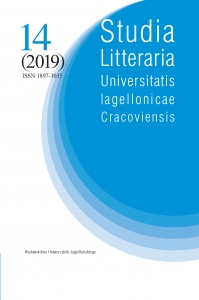Трагедия жизни и мeтaфизика смерти в позднем творчестве Ивана Тургенева
The Tragedy of Life and the Metaphysics of Death in the Late Work of Ivan Turgenev
Author(s): Wasilij Georgievich SzczukinSubject(s): Human Rights and Humanitarian Law, Metaphysics, Russian Literature, 19th Century, Theory of Literature
Published by: Wydawnictwo Uniwersytetu Jagiellońskiego
Keywords: Ivan Turgenev; metaphysics of life and death; tragedy; romanticism; pantheism; human rights;
Summary/Abstract: The text of the article contains a series of reflections on the tragic concept of life and metaphysics of death in the works of Ivan Turgenev in the 1870s and early 1880s, which the reader can easily find in most of his works of this period. Life on earth is seen as a great universal tragedy, in which an individual human being is doomed to defeat in the fight against the metaphysical power of nature, with an iron necessity for death and mortal love disease – the most beautiful manifestation of humanity, which is also a death sentence. The precursor of Turgenev’s vision of the world was the philosophy of Arthur Schopenhauer; regardless of the author of Fathers and children, similar thoughts appear in the works of Charles Baudelaire and Guy de Maupassant. The authors emphasize two main reasons for Turgenev’s global pessimism: firstly, a personal tragedy associated with a deeply and deeply lived love for Paulina Viardot, condemned to failure; and secondly, the powerful influence of Neoplatonism and the pantheistic Romantic philosophy under the sign of Schelling, within which the writer’s views developed during his youth. An analysis of a number of works created in the last years of Turgenev’s life, in which pictures of the transcendent world or longing for it appear more and more frequently, as evidenced by the regularly occurring oneiric motifs and the motif of a meek expectation of death. At the same time, the writer defends the human right to a dignified death, appropriate to the inalienable dignity of every human being.
Journal: Studia Litteraria Universitatis Iagellonicae Cracoviensis
- Issue Year: 15/2020
- Issue No: 3
- Page Range: 229-237
- Page Count: 9
- Language: Russian

